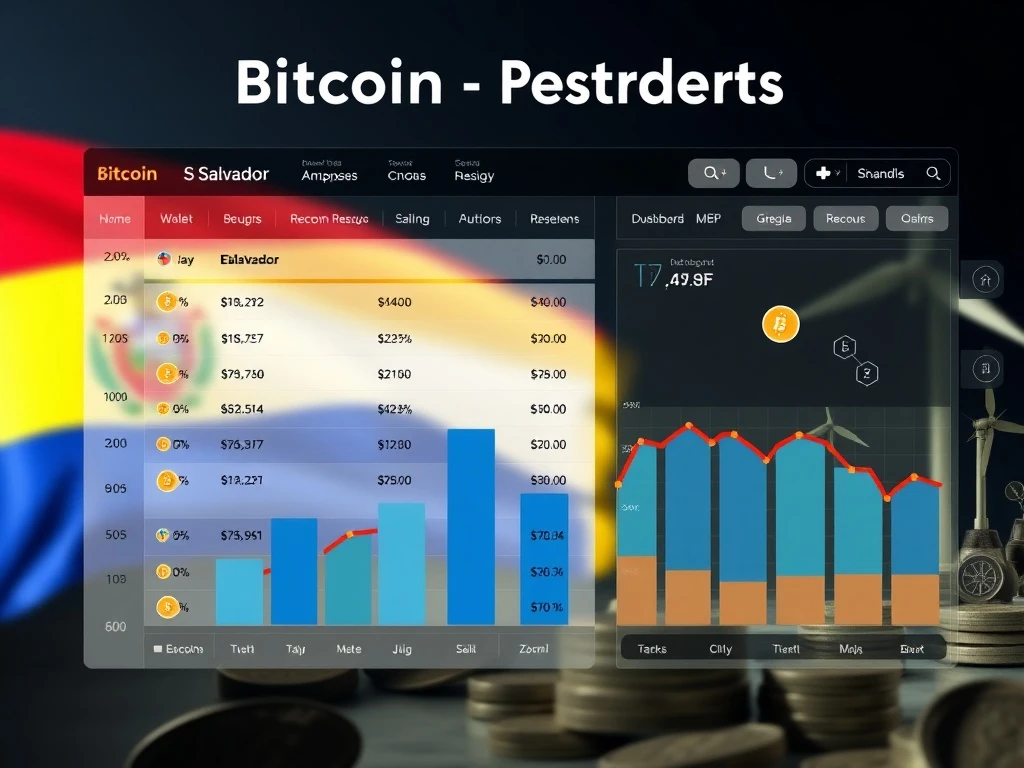El Salvador’s groundbreaking Bitcoin reserve strategy has captured global attention by achieving 375.5% returns since 2023, fundamentally reshaping how emerging markets approach digital asset management and economic sovereignty.
Quantum-Resistant Bitcoin Allocation Framework
El Salvador implemented a sophisticated Bitcoin reserve strategy by distributing $678 million across 14 separate wallets. Each wallet contains no more than 500 BTC, effectively mitigating quantum computing risks. This approach establishes new standards for sovereign digital asset protection. The fragmentation technique aligns with cryptographic best practices including:
- UTXO obfuscation for enhanced transaction privacy
- Address diversification to prevent single-point failures
- Real-time transparency through public monitoring dashboards
Institutional Adoption Through Legislative Innovation
The 2025 Investment Banking Law transformed El Salvador’s Bitcoin reserve strategy into an institutional-grade framework. This legislation mandates $50 million capital requirements for crypto banks and introduces PSAD licenses for accredited investors. Consequently, the country attracted significant institutional capital while maintaining regulatory oversight. The law successfully positions Bitcoin as a legitimate reserve asset rather than merely speculative investment.
Performance Metrics and Comparative Analysis
El Salvador’s Bitcoin reserve strategy delivered exceptional returns, outperforming traditional assets dramatically. Since 2023, the reserves appreciated 375.5%, surpassing both gold and S&P 500 performance. This success demonstrates how strategic asset redistribution combined with institutional-grade governance drives market confidence and price appreciation. Emerging markets now view this model as a viable alternative to traditional reserve assets.
Geothermal Mining and Cross-Border Partnerships
The Bitcoin reserve strategy extends beyond mere asset accumulation into sustainable infrastructure development. El Salvador leverages volcanic geothermal energy for Bitcoin mining, creating an environmentally conscious approach to digital asset generation. Additionally, partnerships with neighboring countries like Bolivia establish regional cooperation frameworks. These initiatives enhance economic resilience against fiat currency devaluation while promoting renewable energy utilization.
Emerging Market Adoption and Global Implications
Multiple emerging economies now study El Salvador’s Bitcoin reserve strategy as a blueprint for their own financial transformation. Nations facing hyperinflation and banking access limitations particularly benefit from this approach. The strategy demonstrates how digital assets can serve as effective hedges against traditional financial system vulnerabilities. However, challenges remain including IMF restrictions and varying public adoption rates across different demographics.
Future-Proofing Against Quantum Computing Threats
El Salvador’s Bitcoin reserve strategy proactively addresses emerging technological threats. While quantum computing remains largely theoretical, the wallet fragmentation approach provides immediate protection against potential attacks. This forward-thinking methodology serves as a transitional framework until post-quantum encryption standards become widely implemented. The strategy thus combines current security practices with future-proof planning.
FAQs: El Salvador’s Bitcoin Reserve Strategy
How does wallet fragmentation protect against quantum computing?
Wallet fragmentation distributes Bitcoin across multiple addresses, making it computationally impractical for quantum computers to attack all wallets simultaneously. This approach significantly reduces single-point vulnerability risks.
What returns has El Salvador achieved with its Bitcoin strategy?
The reserves have appreciated 375.5% since 2023, substantially outperforming traditional assets like gold and the S&P 500 during the same period.
How does geothermal energy support Bitcoin mining?
El Salvador uses volcanic geothermal energy to power mining operations, creating sustainable and cost-effective Bitcoin production while reducing environmental impact.
What regulatory frameworks support this strategy?
The 2025 Investment Banking Law establishes $50 million capital requirements for crypto banks and PSAD licenses for accredited investors, creating institutional-grade oversight.
Are other countries adopting similar approaches?
Several emerging markets are exploring similar frameworks, particularly nations experiencing high inflation and limited access to traditional banking systems.
How does the public monitor these reserves?
El Salvador maintains a real-time public dashboard that tracks all Bitcoin holdings and transactions, ensuring complete transparency and accountability.


